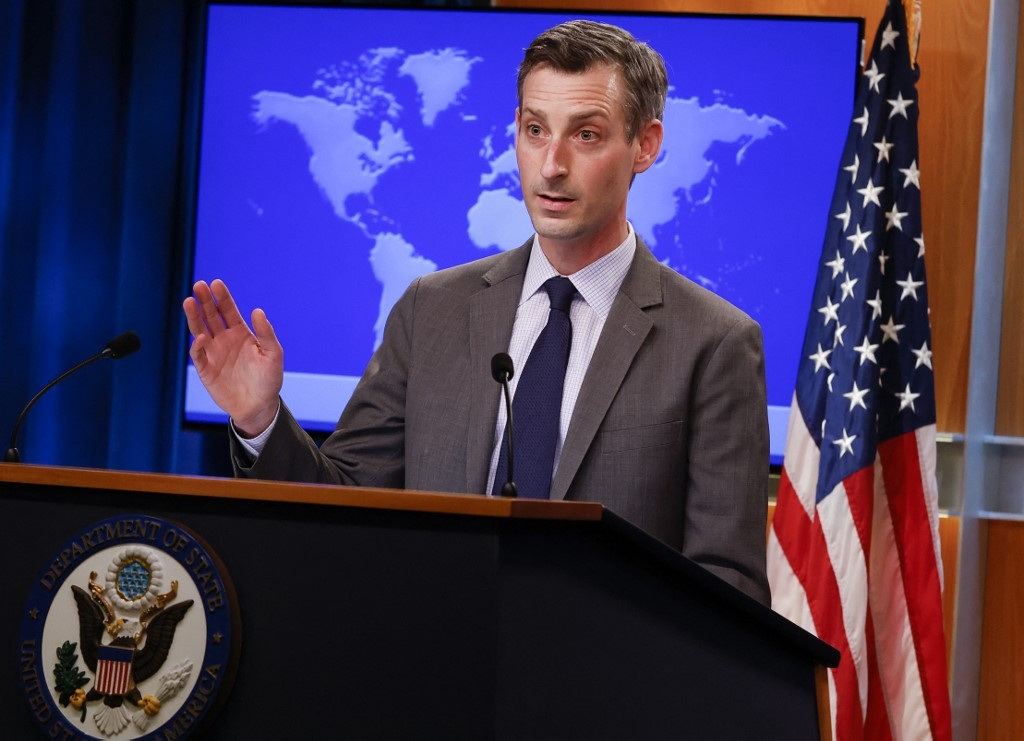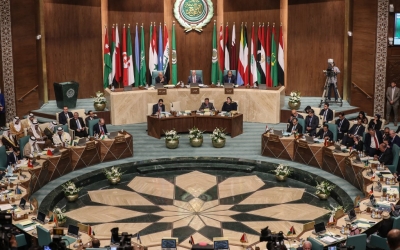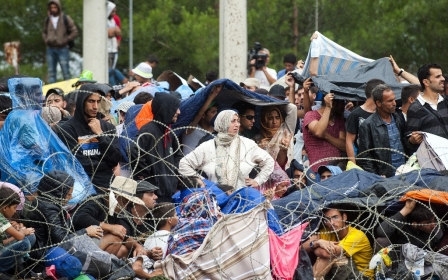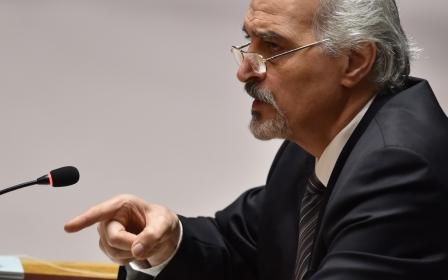US says Syria's Assad has 'done nothing' to restore legitimacy

The United States has no plans to normalise relations with the Syrian government, as President Bashar al-Assad "has done absolutely nothing" to regain legitimacy, the State Department has said.
During a news conference on Thursday, State Department spokesperson Ned Price told reporters the US will continue to promote a political settlement to end the conflict in Syria through regional partners, but would not seek normalisation with the Syrian government.
"He has done absolutely nothing to regain the legitimacy that he has lost through the brutal treatment of his own people. There is no question of the US normalising relations with his government anytime soon," Price said.
"There is no question that we will stand - that we will seek to support the humanitarian plight of the Syrian people as we seek a political settlement that would end their suffering."
Price dodged questions when pressed as to whether the Biden administration planned to push for regime change in Syria, but doubled down on the US's commitment to "a durable political settlement".
New MEE newsletter: Jerusalem Dispatch
Sign up to get the latest insights and analysis on Israel-Palestine, alongside Turkey Unpacked and other MEE newsletters
After ten years of war sparked by President Assad's brutal crackdown on largely peaceful popular protests, the war-torn country remains in turmoil despite the deterioration of opposition forces.
"A political settlement, we believe, must address the factors that drive the violence, that drive the instability in Syria. We'll use a variety of tools at our disposal to push for a sustainable end to the Syrian people’s suffering," Price said.
While Russia and Iran have openly backed the Syrian government militarily over the years, much of the international community, which initially called for Assad's resignation, has now come around to the likelihood of his continued rule.
Still, the US and its allies have been hesitant to normalise relations with the government as it continues to avoid accountability for the more than half-a-million dead and the nearly 13 million that have been internally displaced or forced to flee the country.
Earlier this week, however, the Arab League recommitted its intentions to bring the Syrian government back into the regional fold, calling on the US to reconsider its position.
Emirati Foreign Minister Sheikh Abdullah bin Zayed, during a news conference on Tuesday, said the US's Caesar Act sanctions were directly impeding the 22-member bloc's efforts to mend ties.
Holding Assad accountable
The US Caesar Act, which took effect in June of last year, seeks to hold President Assad accountable for atrocities committed during the drawn-out war and prevent government reconstruction efforts as well as the normalisation of trade.
But the sanctions packet has been controversial, as aid groups complain that it has put a burden on ordinary citizens and stalled humanitarian efforts because banks are hesitant to do business in the country despite sanction waivers.
So far, the UN General Assembly's 2016 establishment of an international mechanism to investigate and prosecute some of the most serious crimes under international law committed in Syria has been one of the few moves to offer a path to real accountability, Amnesty International said in a statement on Friday
"Following successive failures at the UN Security Council… this has offered Syrians the only avenue for justice to date, as it facilitates pursuing cases through national courts under the principle of universal jurisdiction," the group said.
The group noted that in February, a Syrian government official was convicted of crimes against humanity in Germany for the first time; while last week, Canada requested formal negotiations under the UN Convention Against Torture to hold Syria accountable for human rights violations. The Netherlands made a similar request in 2020.
"Without justice, the cycle of bloodshed and suffering in Syria will continue. A handful of states are leading the way by taking crucial steps towards justice; now it is time for others to follow suit," said Lynn Maalouf, deputy director for the Middle East and North Africa at Amnesty International.
"It is high time for the powers backing the forces on the ground to realise that they can’t continue to ignore justice and accountability if there is to be any hope for a safe and dignified future for the Syrian people.
Middle East Eye delivers independent and unrivalled coverage and analysis of the Middle East, North Africa and beyond. To learn more about republishing this content and the associated fees, please fill out this form. More about MEE can be found here.






